You can trust Cyclingnews
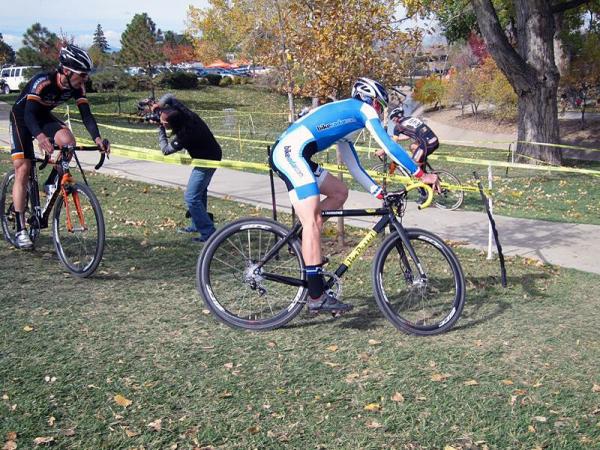
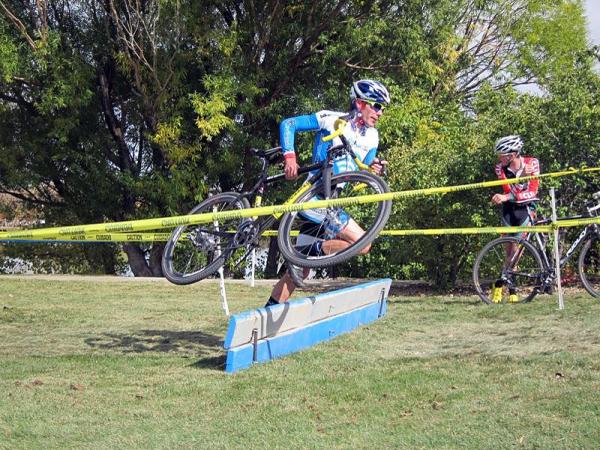
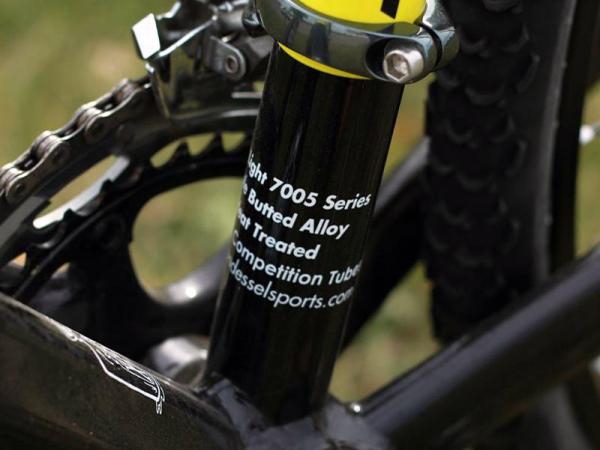
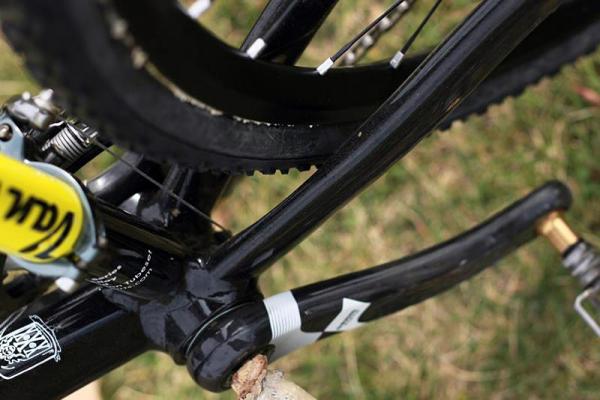
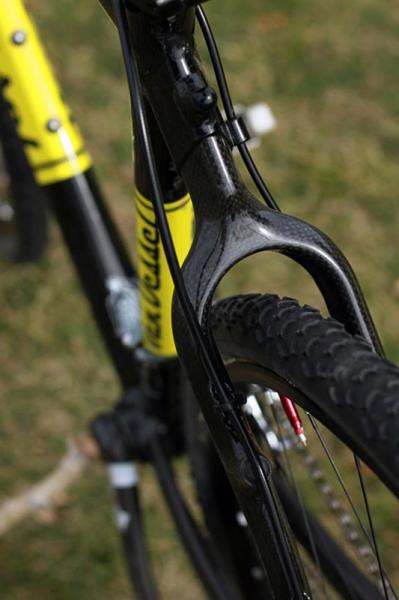
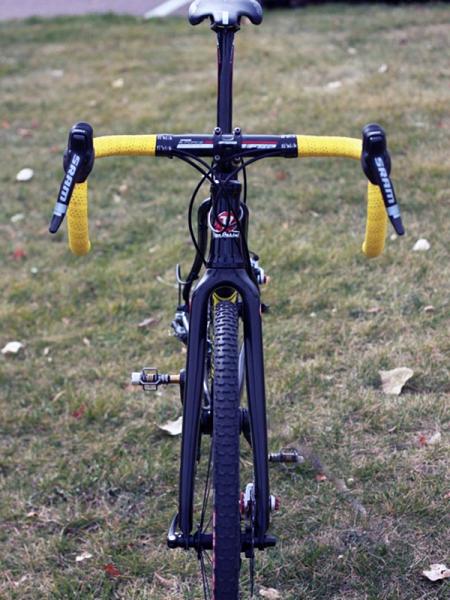
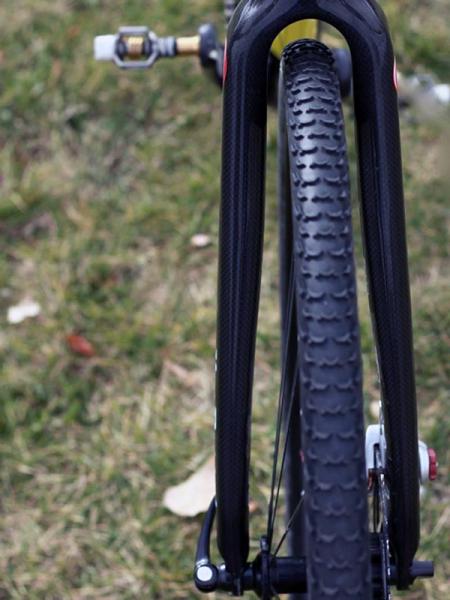
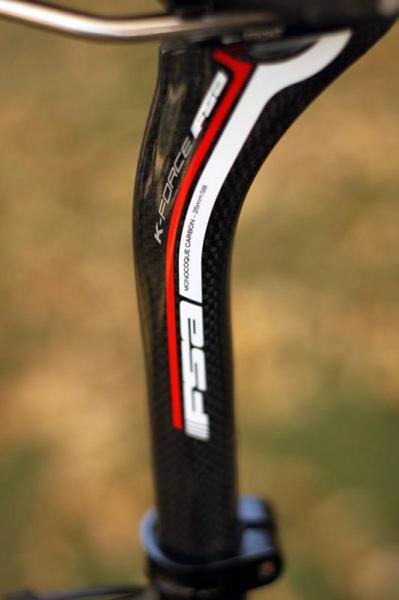
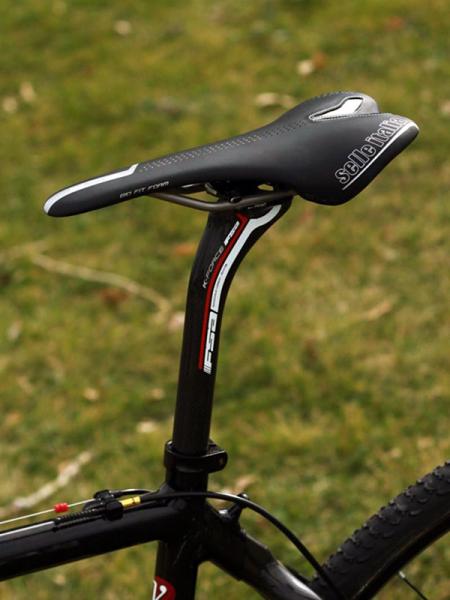
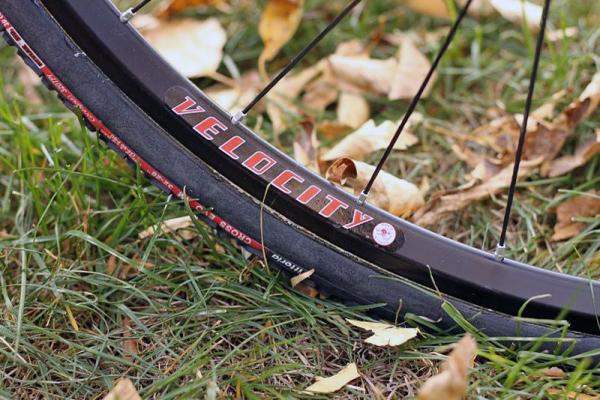
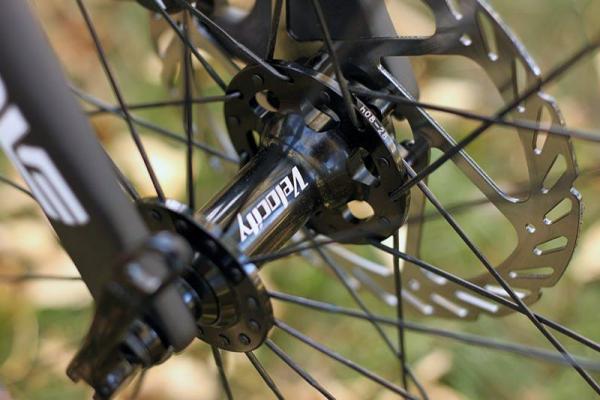
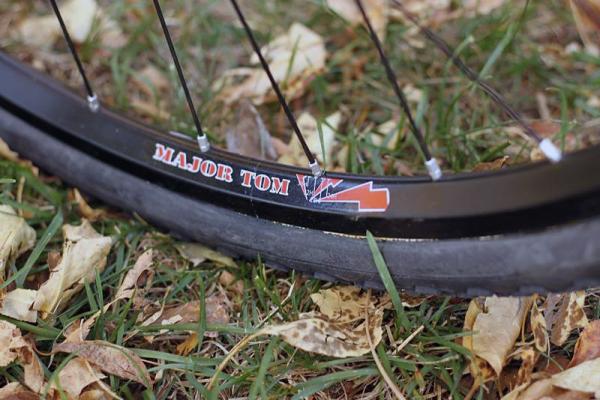
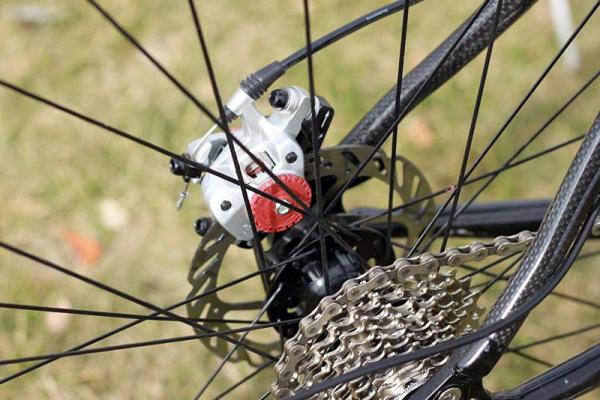
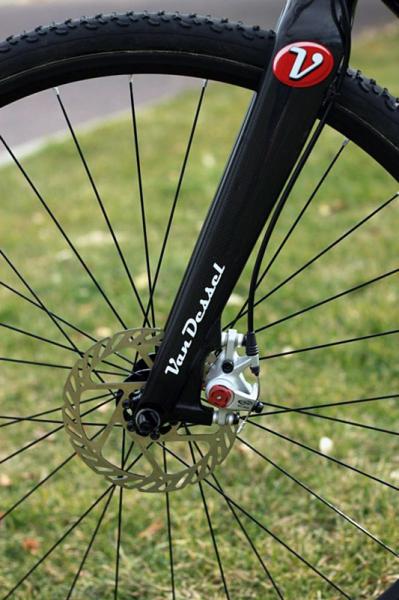
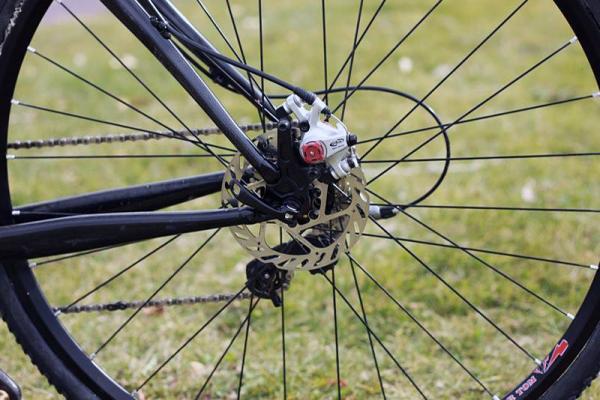
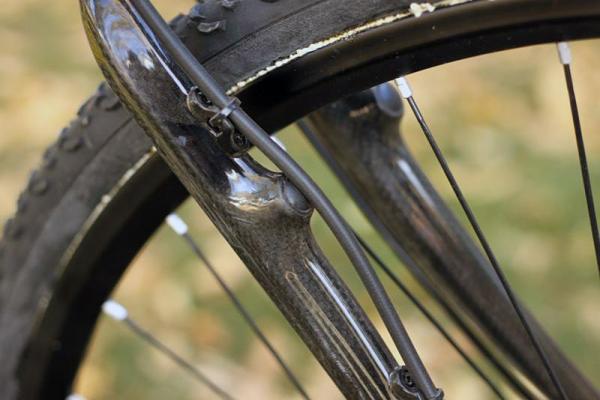
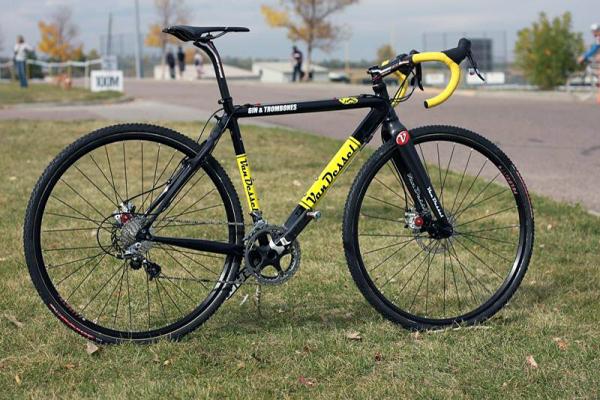
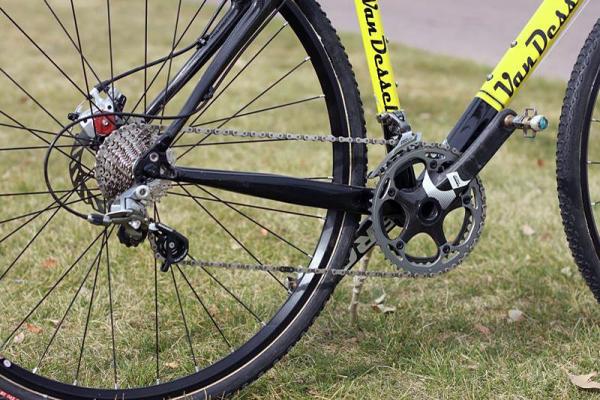
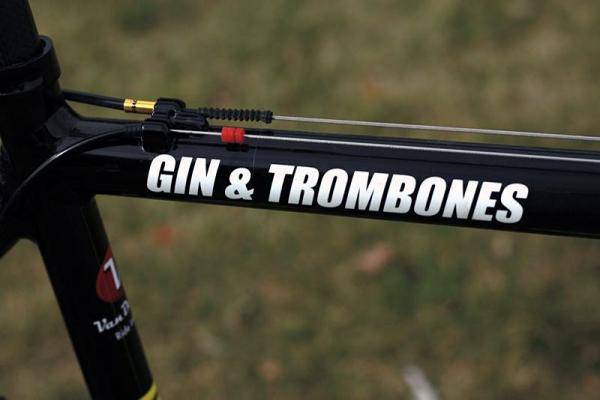
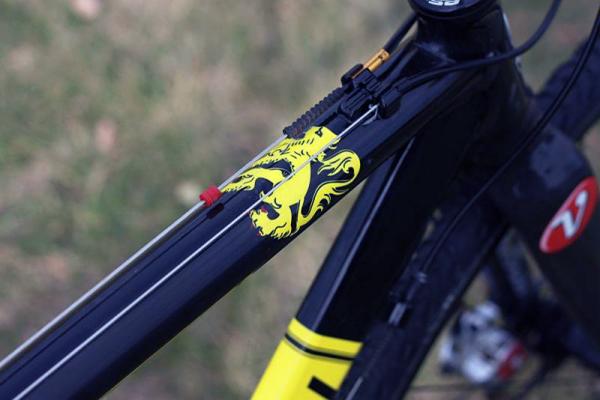
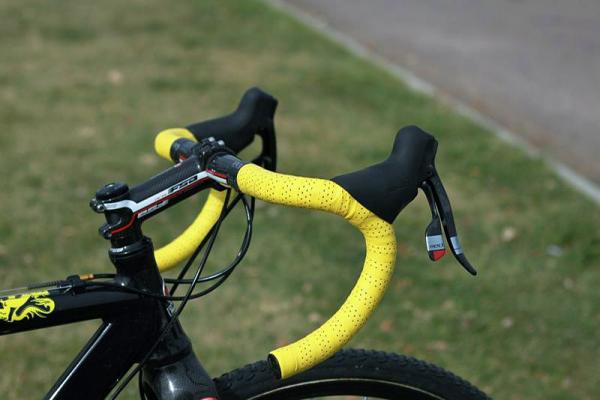
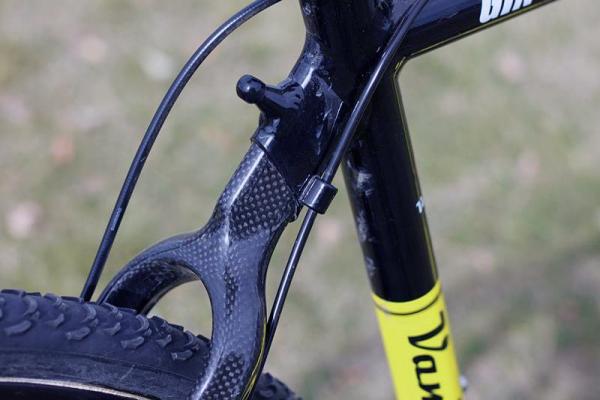
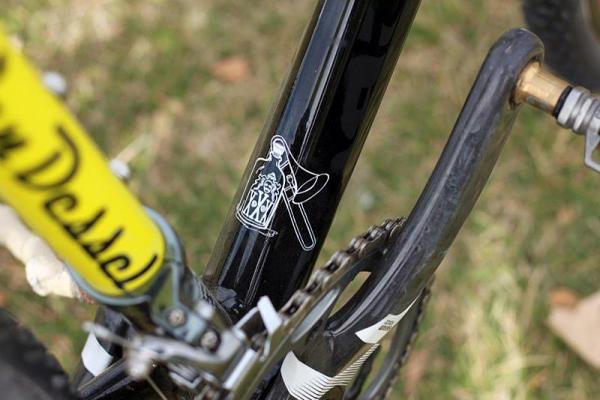
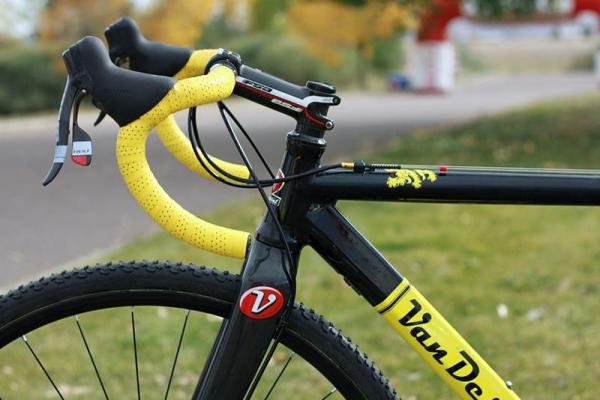
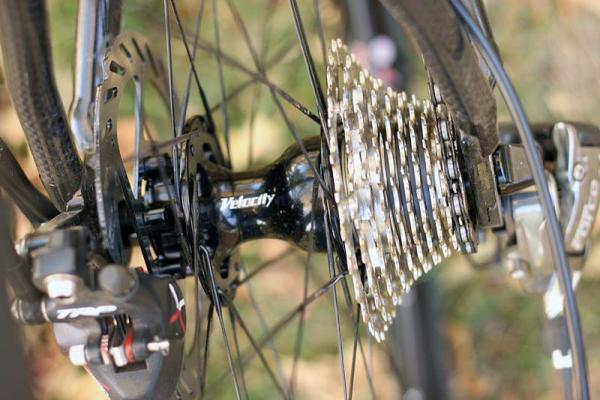
This article originally appeared on BikeRadar
Van Dessel’s Gin & Trombones was introduced in 2005 and remains a mainstay of the line. It's the model that helped build the Van Dessel brand – a working-class cyclo-cross race bike with excellent geometry that tips wholeheartedly towards the US style of riding. We've reviewed the Gin & Trombones before, but this latest generation version adds mounts for disc brakes.
Ride and handling: Weighty, but with almost perfect handling
We love low-slung, slack bikes, whether we’re talking about full-suspension trail rigs or cyclo-crossers, so we're big fans of the 71.5° head angle and 7cm of bottom bracket drop on the Gin & Trombones. The 75° seat angle puts you over the bottom bracket, which feels good when trying to put the power down, and the forward position feels beneficial when attacking a course, especially when hard cornering or bunnyhopping are required.
The bike tracks solidly, thanks partly to the super-stiff disc-specific fork. As well as aiding steering precision, this also resists any fore-aft flex under the powerful braking provided by the disc caliper. The drawback is a harsh ride feel up front that's the polar-opposite of the smooth rear end. We swapped it out for ENVE's new disc fork for part of our test period and found this to bring the two ends of the bike together better. It suffered noticeably more fluid fore/aft flex but still tracked solidly.

The Gin & Trombones is nimble and smooth, which provides for a competent racer
n this day and age of carbon fiber, we expect bikes to have super-stiff pedaling platforms mated to smooth and comfortable rides. Aluminum bikes, however, tend to be either soft or stiff, and not an ideal combination of the two – and the Gin & Trombones is no exception. The rear end is smooth-feeling on rough terrain, and we like it that way, but this does come at the expense of pedaling stiffness.
For an alloy bike, we actually found it to resist pedaling deflection reasonably– an attribute likely helped by the shaped down tube and BB30 bottom bracket – but heavier or more powerful riders will notice the difference compared to a stiffer carbon frame. That said, when it comes to cyclo-cross, we'd rather have a bike with a soft pedaling feel but a comfortable ride than the opposite: one that's stiff but harsh.
We rode the Gin & Trombones in the mud and the dry, in hot and cold temperatures, and on slow and fast courses. When it was dry, hot and fast we noticed its 8.3kg/18.29lb (without pedals) weight and we'd have traded the disc brakes for a lighter cantilever setup. However, when it was slow, muddy and technical, we were generally as content as any Martini-and-big-band-fueled happy hour could leave us – a true compliment for a ’cross bike, we think.

The Gin & Trombones comes with Avid's BB7 mechanical disc brakes – a decade-old design that nonetheless offers great modulation
As for the disc brakes, naysayers say they're too heavy and there’s no need for so much power with such small tire contact patches. We say ride them once – it’s all you need to understand that it’s not about power but having better control with less effort. In certain conditions, they can undoubtedly help a racer go faster. In wet and mud, we'd always pick discs. And with weights likely to come down over the next couple of years, we'll see the same rim brake die off.
Frameset: 7005 series alloy, carbon seatstays and modern design features
If you're thinking of buying a Gin & Trombones, select your size wisely – our 52cm test bike only had a 1cm shorter top tube than the 54cm size but a 1mm longer wheelbase (1,015 vs 1,014mm), a 0.5° slacker head angle and 1° steeper seat angle – both beneficial for 'cross, in our opinion.
The 1,520g frame is made from 7005 series triple-butted alloy, except for the seatstays, which are carbon fiber. There's an IS disc caliper mount attached to the CNC machined non-drive dropout but in case you want to stick with cantilevers, there are threaded post mounts and a rear housing boss for these, too.

The carbon seatstays offer additional comfort and great mud clearance
From this season forward, Van Dessel will only offer one Gin & Trombones frame, which will be accompanied by your choice of a disc-only or cantilever-only fork. The fork is a straight-bladed all-carbon affair that's quite light at 470g and plenty stiff, but also quite harsh. The post mounts on our disc-specific version are designed for a 160mm rather than 140mm rotor.
The rear end is 130mm spaced. We'd prefer to see the 135mm standard to capitalize on the wider spaced flanges and subsequent stronger wheels the extra 5mm of axle width can offer. Another benefit is the ability to use 29in mountain bike wheels on your 'cross bike, so if you've forked out for a high-end 29er wheelset you can use it all year round. Forgive us, Van Dessel, but we found that by spreading the dropouts a bit by hand we could fit 135mm wheels in just fine.
The Gin & Trombones sports two contemporary design features in the form of a tapered internal headset and BB30 bottom bracket. The seatpost diameter is just 27.2mm, which adds an additional bit of comfort, especially with a carbon post fitted. Both cable routing and mud clearance are good.

We'd have preferred to see 135mm spacing on the Gin & Trombones
Equipment: Solid workhorse, but very pricey
The Gin & Trombones frameset – frame, fork, and headset – costs $1,149. From there, the price follows your desires. Van Dessel offer just about any drivetrain components you want from Campagnolo, Shimano or SRAM. A canti-equipped bike with Shimano 105 can be had for $2,500. Our model with Avid BB7s, a high-end FSA K-Force cockpit and a SRAM Force groupset with subbed Red shifters, hit $4,299.
While the Gin & Trombones is a very strong performer, this doesn't seem like the best deal, considering there are plenty of comparably equipped (non-disc) full-carbon bikes available for considerably less. However, the spec is more than competent, with the K-Force carbon handlebar, OS99CSI stem and 25mm setback seatpost all performing flawlessly. The Selle Italia SLR saddle was a bit firm but Van Dessel offer alternatives.
Our tester came with Velocity Major Tom alloy tubular wheels. These are rather heavy at 6.7lb/3.06kg but with the right tires are a reasonable option for those who appreciate the advantage of tubulars but can't afford carbon. Van Dessel offer complete bikes without wheels as well as a range of wheelset choices, including tubular options from Velocity and both alloy and carbon models from Revolution. Tubulars come with a choice of Challenge tires – the Fango, Grifo or new Limus mud tire.

Velocity's Major Tom wheelset is heavy but still offers all of the traction and comfort benefits associated with tubulars
Price: US$4,299 (as tested)
Weight: 8.3kg
Cyclingnews verdict: 3 and a half stars
More information: www.vandesselsports.com
Complete bicycle specifications:
Frame: Van Dessel Gin & Trombones Disc, 7005-series alloy, carbon seatstays
Available sizes: 50, 52 (tested), 54, 56, 58, 60cm
Fork: Van Dessel Disc
Headset: FSA
Stem: FSA OS99 CSI
Handlebars: FSA K-Force
Tape/grips: Fizik Microtex
Front brake: Avid BB7
Rear brake: Avid BB7
Brake/shift levers: SRAM Red
Front derailleur: SRAM Force
Rear derailleur: SRAM Force
Cassette: Shimano 5700
Chain: SRAM PG-1050
Crankset: SRAM Force
Bottom bracket: SRAM Force BB30
Pedals: n/a
Front hub: Velocity Disc
Rear hub: Velocity Disc, 130mm
Rims: Velocity Major Tom tubular
Front tire: Vittoria Cross Evo XM tubular
Rear tire: Vittoria Cross Evo XM tubular
Saddle: Selle Italia FSR
Seat post: FSA K-Force, 27.2mm